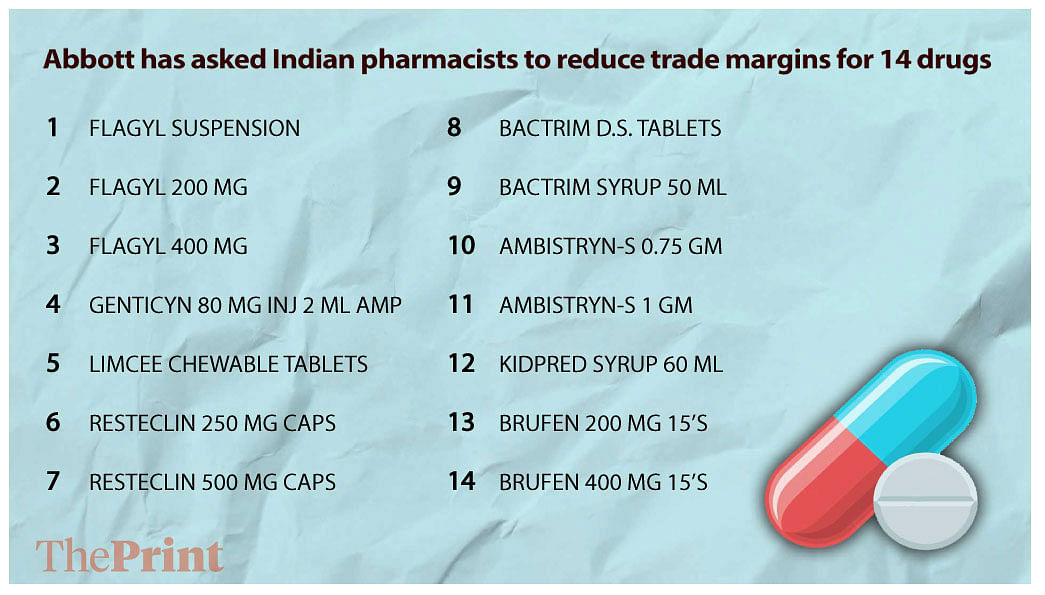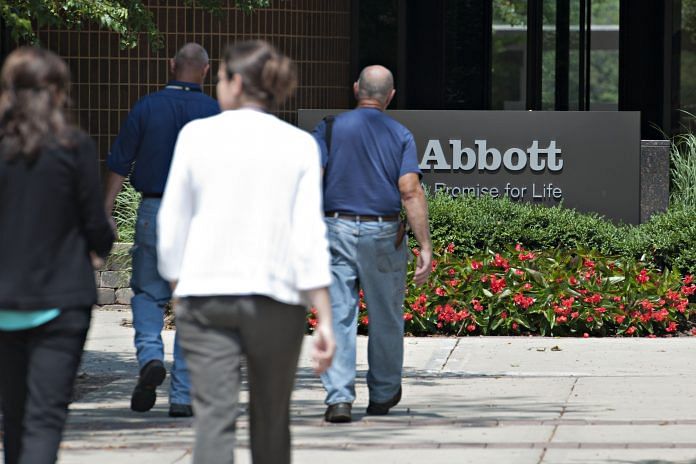Abbot wants margins cut on 14 key drugs. But the association of pharmacists has refused to compromise on profits.
New Delhi: US pharma giant Abbott Laboratories has requested Indian chemists and stockists to cut their profit margins on 14 of its key drugs saying manufacturing them has become unviable after their prices were capped by the government.
However, the association of pharmacists has rejected the proposal, saying they didn’t want to compromise on their margins.
The central government in 2013 started expanding the list of drugs whose prices were capped as they are considered essential for the treatment of common conditions.
Abbot has submitted a proposal to the All India Organisation of Chemists and Druggists (AIOCD), the apex body representing over 8 lakh medicine sellers across India, asking them to reduce the retailers’ margin to 16 per cent from 20 and that of stockists to 8 per cent from 10.
“The company has requested a cut in the trade margins on some of their products that are part of the National List of Essential Medicines and fall under the government’s price-control drive,” AIOCD president J.S. Shinde told ThePrint.
The 14 products include household medicines such as anti-infective injection Genticyn, Vitamin C tablets Limcee, anti-allergic syrup Kidpred, and antibiotics Bactrim and Flagyl. After being placed under price control, most of them cost between Rs 5 and Rs 30 per strip, bottle or injection.

“The company executives explained that these products have become economically unviable and couldn’t be produced for a long period,” Shinde added.
Abbott Laboratories did not respond to requests for comment from ThePrint.
Possible loopholes
A similar situation arose in November 2017 when the National Pharmaceutical Pricing Authority (NPPA) capped the price of a life-saving medication for paediatric heart patients to less than a tenth of its MRP at the time, from Rs 100-110 to Rs 10 for a 30 ml bottle.
This caused a supply crunch after the manufacturer, Samarth Pharmaceuticals, said it could not sell the product at a price lower than the manufacturing cost. As reports emerged of the drug going off the shelves, the drug price regulator raised the price cap to Rs 78, according to a report in The Indian Express.
While the NPPA claims that it sought information from various government procurement agencies to fix the caps, the Samarth episode reflects possible gaps in the process, sources said.
R.K. Vats, additional secretary in the health ministry who holds additional charge as NPPA chairman, refused to comment when reached by ThePrint.
How are drug prices fixed?
Currently, the ministry of health and family welfare, in consultation with field experts, prepares the National List of Essential Medicines (NLEM), a catalogue of drugs that need to have price caps as they are considered essential for the treatment of common conditions.
The NLEM currently lists 376 drugs, but the list can be updated by the government.
The medicines and devices listed have to be sold at the price fixed by the NPPA, while the others are allowed a maximum annual price hike of 10 per cent.



